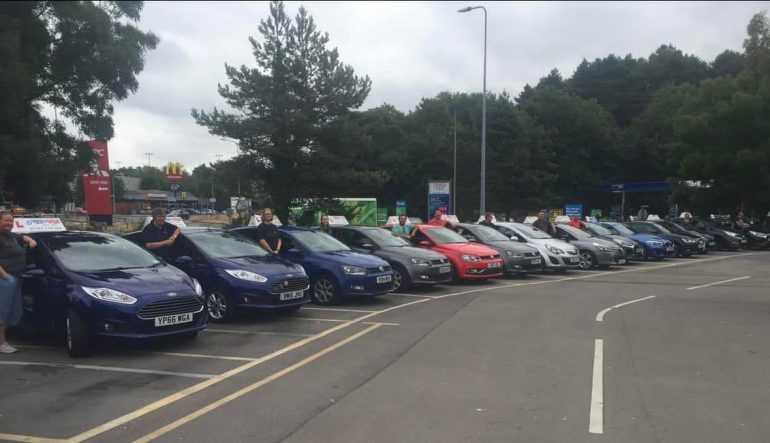It’s been one thing after another for driving instructors and learner drivers
DRIVING instructors have seen their costs rise by up to a quarter amid the cost-of-living crisis and pandemic hangover, while learners are still facing difficulty booking tests.
Over 90% of driving schools have had to increase their prices in the last two years with the average hourly rate now between £31 and £35, according to a DVSA survey.
Neil Mayes, who owns Streetwise, one of South Wales’ largest independent school, said he has seen his outgoings rise considerably compared with this time last year.

Facebook: Neil Mayes
He told The Cardiffian: “Costs have increased by roughly 25% in the last year. We have incurred massive increases in fuel along with insurance and other business costs.
“We have done our very best to keep prices as low as possible but this is unfortunately proving extremely difficult at the moment.”
At its peak, petrol went up by 48 pence per litre between January and July, with diesel rising by 50p in the same period.
Unleaded prices have since fallen closer to the levels they were before the sharp rise after the Russian invasion of Ukraine, although diesel is still over £1.80 a litre.
Despite these costs also biting customers, Mr Mayes has only seen a slight fall in demand for lessons in recent weeks as learners tighten their belts in the run up to Christmas.
“I do foresee this changing in the New Year however,” he said. “It’s too early to say whether this is cost-of-living related but I know that other instructors are feeling the pinch.”
He employs 24 instructors, and opened up about the pressures of staying afloat over the last two and-a-half years.
“I can’t lie, it’s been an incredibly tough journey since Covid restrictions were imposed and ensuring the survival of my business has been the number one priority.
“We are fortunate however, that as a company, Streetwise is well established and will continue to receive enquiries from those seeking driving lessons.”
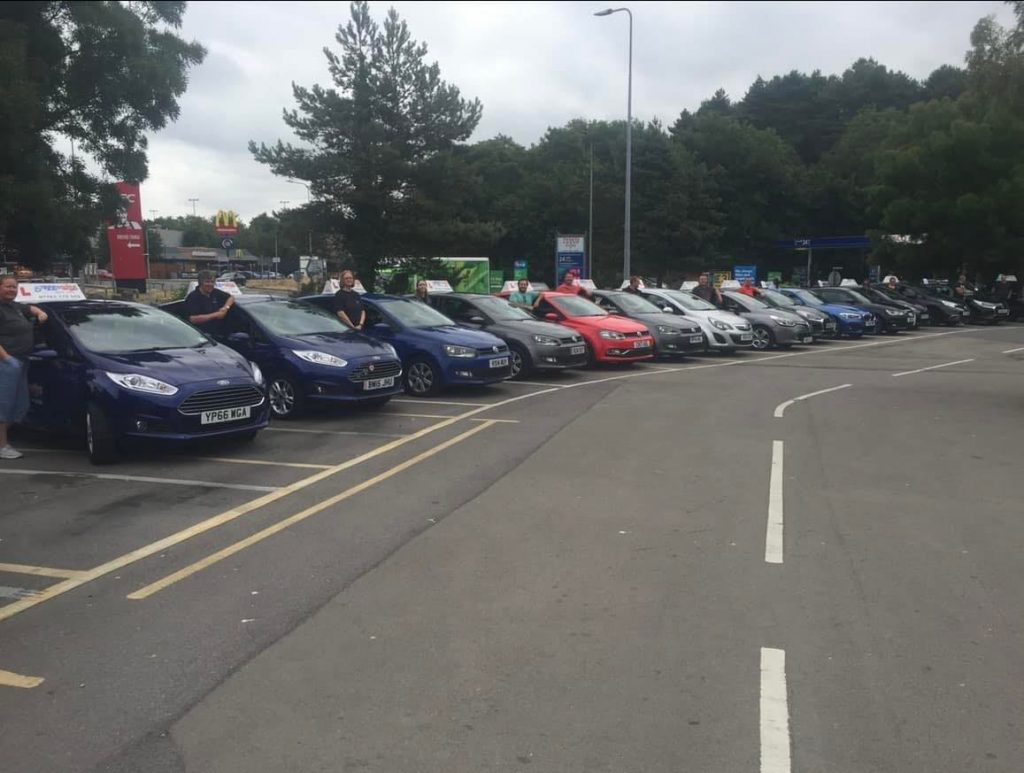
Facebook: Neil Mayes
During the pandemic, lessons were suspended for much of the first lockdown between March and July 2020.
They were allowed to restart subject to restrictions such as facemasks and regular testing.
Unlike most work places, however, social distancing within the confines of a car proved impractical.
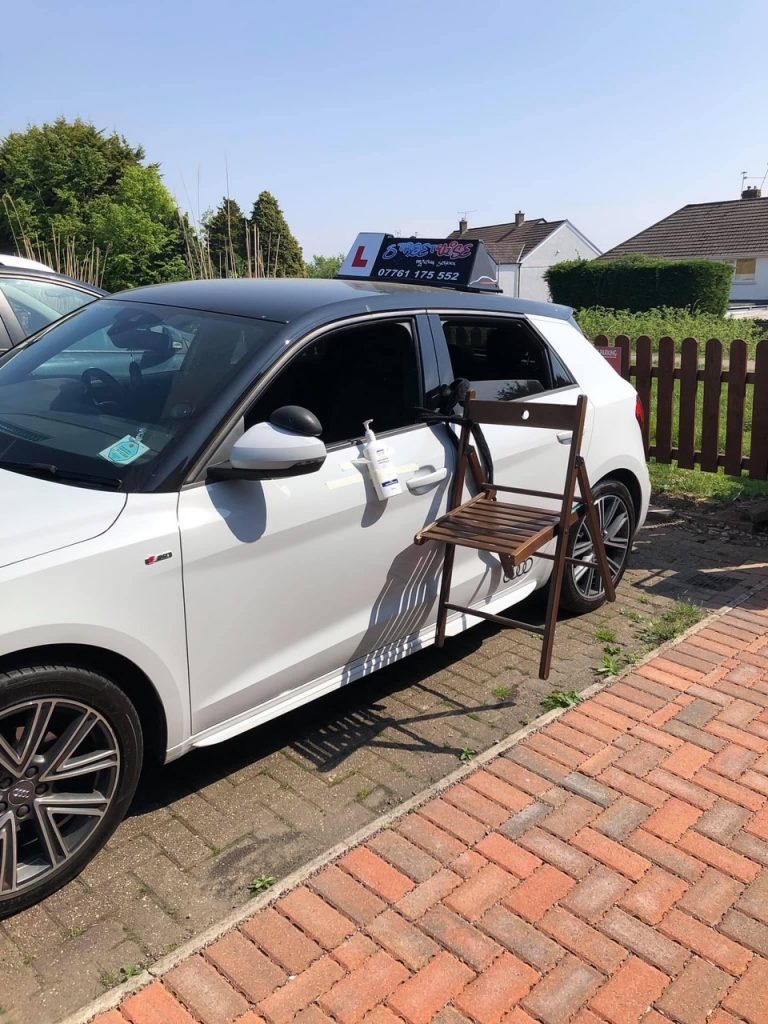
Facebook: Neil Mayes
These measures, alongside the subsequent lockdowns, prevented the Driver and Vehicle Standards Agency (DVSA) from being able to conduct tests for seven months, creating a huge backlog once restrictions eased.
Around 68% of schools currently have no availability for new pupils, although waiting lists have been gradually shrinking since June 2021.
For learner drivers, too, it has been a difficult period.
According to the DVSA website, waiting times for Cardiff’s Llanishen centre are still around three months for a practical test despite the agency recruiting nearly 500 more examiners nationwide to reduce this.
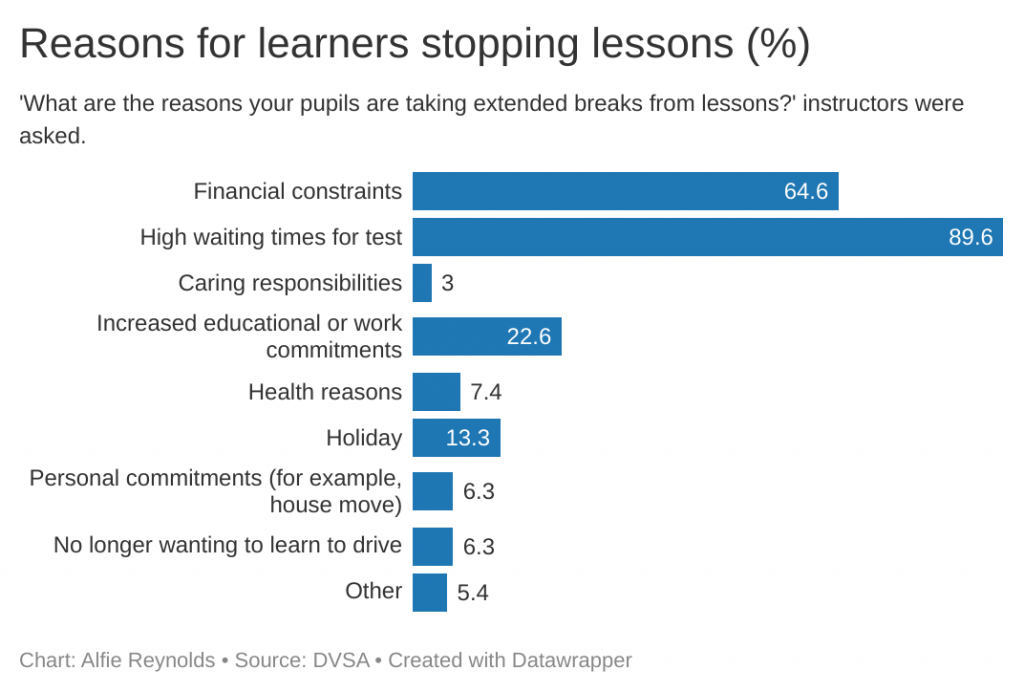
Alongside financial constraints, learners are citing these waits as the main reason for stopping their lessons.
With driving centre staff strikes beginning across the UK, and continuing into January 2023, the disruption to those with L plates is likely to continue.
Examiners at the Cardiff centres in Llanishen and Llantrisant will be picketing from January 4 to 10, meaning that practical tests are likely to be affected.
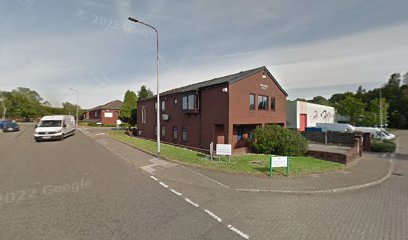
Credit – Google
Mark Serwotka, the general secretary of the Public and Commercial Services Union, said his members are striking over Downing Street ignoring wage demands.
“The government has given them no option. Their pay has fallen far below inflation and many of our members – the government’s own workforce – are forced to use foodbanks because they can’t afford to eat,” he said.
The DVSA has been approached for further comment.
However, they are advising those with tests booked on strike days to attend as planned, unless told otherwise.


